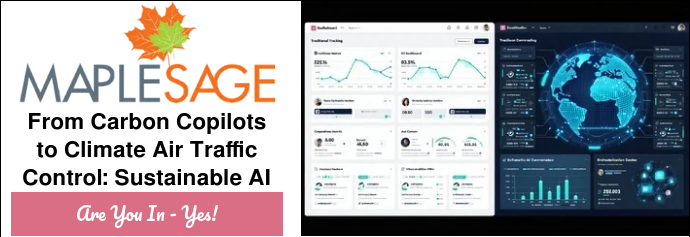
The Green Finance Revolution: Bridging the Gap for Earth's Future

🌍 The Planet's Critical Moment
Our Earth stands at a crossroads. With climate change accelerating and environmental degradation threatening ecosystems worldwide, the window for meaningful action is rapidly closing. The two Bloomberg articles from June 2025 reveal both the challenges and unexpected opportunities in financing our planet's salvation.
💰 The Green Finance Gap: A Call to Action
The Scale of the Challenge
The numbers are staggering: $200 trillion over three decades is needed globally for the net zero transition. Yet in 2024, investment reached only $2 trillion. This massive gap represents not just a financial shortfall, but a direct threat to Earth's climate stability.
UK's Brave Stand
The UK's National Wealth Fund, with £27.8 billion in public money, is stepping up to fill critical gaps. Ian Brown's criticism of British banks reveals a harsh truth: despite being "better capitalized than they've ever been," financial institutions are failing Earth when it matters most. They're avoiding:
- Construction risk in renewable projects
- Technology risk in climate innovations
- Early-stage investments in climate tech startups
This risk aversion isn't just disappointing—it's planetary negligence.
🌱 The Unexpected Green Champion: Geopolitical Chaos
Trump's Paradoxical Legacy
Ironically, President Trump's "energy dominance" agenda may accelerate global decarbonization. His chaotic foreign policy and trade disruptions are forcing nations to reconsider their energy dependencies, creating what the article calls a new ESG framework:
Economics - Renewable energy becoming cost-competitive Security - Energy independence through domestic renewables
Geopolitics - Reducing vulnerability to volatile fossil fuel exporters
China's Strategic Earth-Saving Gambit
China's massive clean energy deployment isn't just about economics—it's about planetary stewardship at scale:
- 358 gigawatts of wind and solar added in 2024 alone
- Half of global nuclear capacity under construction
- Leading the EV revolution while the world watches
While China still burns coal, its renewable foundation is creating the infrastructure for Earth's energy transformation.
🚨 The Institutional Investor Problem
Brown's harsh criticism of investment managers reveals a troubling pattern: ESG funds worth billions are playing it safe while Earth burns. They're investing in:
- ✅ "Fixed-bottom wind" (safe, operational assets)
- ✅ Solar farms already generating returns
- ❌ NOT construction-phase renewable projects
- ❌ NOT breakthrough climate technologies
This conservative approach may protect portfolios in the short term, but it abandons Earth's long-term survival needs.
🌟 The Path Forward: Finance for Earth's Future
What Needs to Happen Now
Banks Must Step Up
- Embrace construction risk in renewable projects
- Finance climate tech startups like Barclays (though even their effort is "tiny, tiny, tiny")
- Stop hiding behind risk aversion when the planet's future is at stake
Institutional Investors Must Act
- Move beyond operational renewable assets
- Take technology risks on breakthrough climate solutions
- Remember that climate risk dwarfs investment risk
Governments Must Lead
- Use public funds like the UK's National Wealth Fund to crowd in private capital
- Create policy frameworks that make green investments irresistible
- Recognize that taxpayers can't shoulder the entire $200 trillion burden alone
The Electrotech Revolution
The shift toward "electrotech"—electricity-centered energy systems—offers hope. Unlike fossil fuel infrastructure that locks in emissions, electric systems can get cleaner as grids decarbonize. An EV charged by coal today can run on solar tomorrow.
🌍 The Bottom Line: Earth Can't Wait
These articles reveal both the urgency and the opportunity in green finance. While Trump's policies inadvertently push the world toward renewables and the UK calls out financial sector timidity, one truth emerges: Earth's climate stability depends on finance flowing to solutions now, not when they're "safe" investments.
The choice is stark: embrace the risks needed to save our planet, or accept the certainty of climate catastrophe. For financial institutions, the question isn't whether green investments are risky—it's whether they can afford not to take these risks when Earth's future hangs in the balance.
The clock is ticking. The planet is waiting. The finance sector must choose: profits or planetary survival. Ideally, both.



